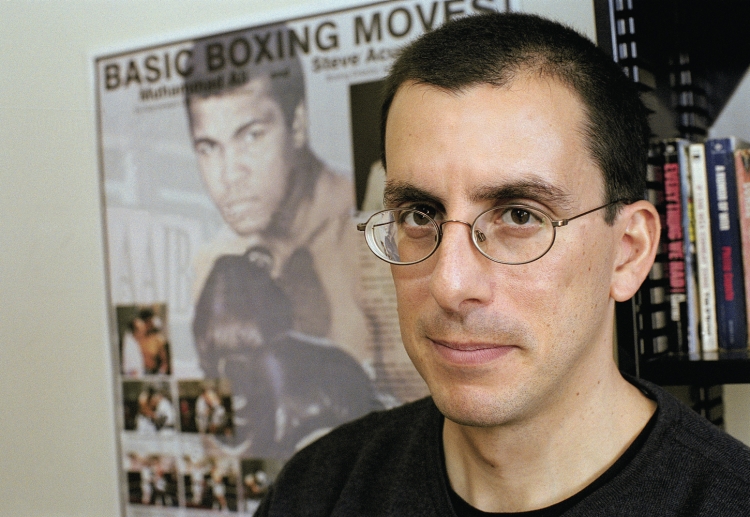
By
Carlo Rotella – English professor, American Studies Program director and acclaimed author – has been the guiding light these past five years for Boston College’s venerable Lowell Humanities Series, which for nearly six decades has featured a host of literary luminaries. Having stepped down from the series directorship, he discussed his strategy for bringing guest authors to Boston College.
Q: You have consistently brought literary stars to campus, many of whom are releasing notable books, or have other prominent projects in the works. What has been your strategy in coming up with a “target” list of high-profiles authors to appear at BC?
Rotella: Many of the ideas for speakers came from faculty members or others on campus. It’s especially good when a department or some other group effort gets behind inviting a particular speaker and works with the Lowell Series to make sure the visit is a success. Some of the speakers were writers I admired and thought would do well. I also tried to make sure that we had a mix of established figures and writers on the way up to that status.
Q: How do the author appearances resonate with students, in terms of their reaction to hearing these authors speak about and read from their works?
Rotella: It runs a wide range. Some students get excited about a specific topic, like Alison Bechdel on graphic memoir, and others seem to get the most out of seeing different writers and thinkers talking about their craft, about process. I thought Dennis Lehane [March 2015], for example, was great: He explained how he learned to tell a story by telling a funny and enlightening shaggy-dog story about himself and his background.
Q: How are authors’ works integrated into classes, to enhance the experience for students and their studies?
Rotella: We always set the slate for the coming year well in advance, so that colleagues have time to put visiting writers’ work and Lowell lectures on syllabi. That goes a long way toward getting the most out of a visit. It’s best when we have several classes there, especially from different departments, and a lot of students who have read the speaker’s work and are already engaged with it.
Q: What feedback have the authors given you over the years about their experiences at BC, particularly in terms of engaging with students and faculty?
Rotella: Several speakers have noted that they’re not used to having young people in the audience who have read their book. They’re always pleased to see so many students present who are knowledgeable about their work.
Q: Have you found that authors are eager to speak to BC students and the BC audience? And does this have to do with the reputation of the Lowell Humanities Series as a premier speaking program?
Rotella: I think writers are always happy to be read, to be heard. But it’s not just BC students and the BC audience. Because the Lowell is also very much a public series, I think speakers appreciate that the audience consists of all sorts of people.
Q: Any other thoughts, as you look back over the years you’ve served as director of the program, with its long tradition on campus?
Rotella: The long-running tradition of bringing distinguished writers and thinkers to campus to give Lowell lectures plays a major role in the two-way traffic between the University and the wider world. And, on the same principle, I think it’s also important that the Lowell is both a significant institution on campus and a public series that welcomes all kinds of audience members to campus.



